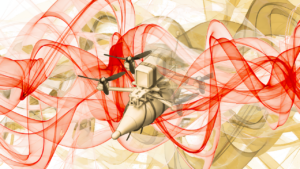Because my company does a significant amount of business in the Kurdish region of Iraq, I have a particular interest in the ongoing struggle between Turks and Kurds in neighboring Turkey. According to The Economist, things may be taking a turn for the better [“Peace time?,” 24 August 2009 print issue]. The article begins with a brief history between the two ethnic groups over the past 80 years.
“For most of the past 80 years those of Turkey’s 14m-odd Kurds who dared publicly to identify themselves as such have been brutally repressed, kicked out of their villages, tortured, jailed or killed. The Kurds have fought back in rebellion after rebellion. None so violent or so long as that launched in 1984 by the outlawed Kurdistan Workers Party (PKK). Over 40,000 people, many of them PKK fighters, have died in a terrorist campaign that has cost the state billions of dollars, blotted its international image, and stymied Turkey’s efforts to become a full-fledged democracy. Successive governments have mumbled about dealing with the Kurdish problem, only to be stopped by Turkey’s hawkish generals.”
In every conflict, however, a moment comes when it is ripe for decisive action on both sides. Most often this moment arrives when one side militarily routs the other. With so much national treasure and precious blood already spilt, military victory no longer looks possible or desirable in the conflict between Turks and Kurds.
“A confluence of circumstances is raising hopes of a more lasting solution under the leadership of Turkey’s prime minister, Recep Tayyip Erdogan, who has staked his political future on this issue. In a ground-breaking speech in parliament earlier this month, Mr Erdogan provoked tears when he spoke of the common pain of Turkish and Kurdish mothers who had lost sons in the conflict. His interior minister, Besir Atalay, has been making the rounds of assorted politicians and civic leaders to build consensus for an as yet unarticulated plan. Mr Erdogan, who has long shunned the largest Kurdish party, the Democratic Society (DTP), for being the PKK’s political front, met its leader, Ahmet Turk, in early August.”
Foreign Policy declares, “Chances of Turkey and the Kurds reaching a rapprochement are at their highest in 25 years” [“Is Turkey Renaming Istanbul Constantinople?,” by Nick Danforth, 4 September 2009]. Although Prime Minister Erdogan has offered previous olive branches to the Kurds, there appears to be a positive difference this time around. Many analysts believe that the future of the global economy rests with the success of emerging market countries and Turkey wants to be a part of that success — so do its Kurdish citizens. The Economist continues:
“The government’s plan is said to include easing remaining bans on Kurdish broadcasting, allowing Turkified villages to regain their Kurdish names, setting up Kurdish language and literature departments in universities and scrapping laws under which thousands of young Kurds are jailed for allegedly acting for the PKK (usually for no more than chanting PKK slogans or throwing stones at police). ‘This time the government means real business,’ concludes Henri Barkey, an American academic who has studied the Kurds.”
The signs of change are everywhere, earlier this month the Turkish government announced that it would stage a play at a national theater in Kurdish [“Turkey to stage play in Kurdish for first time,” by Ibon Villelabeitia, Reuters, 21 September 2009]. Following Erdogan’s speech promising to seek peace with the Kurds, there was a massive demonstration held by Kurds supporting an honorable settlement [“Kurds rally for peace in Turkey,” The Kurdish Globe, 5 September 2009].
“More than 100,000 Kurdish people rallied … in Diyarbakir, the largest city in Turkey’s mainly Kurdish southeast, urging the Turkish government to grant them greater rights and reach a peace deal with Kurdish rebels of the Kurdistan Workers Party (PKK). The demonstration was organized by the Democratic Society Party (DTP), a pro-Kurdish party in Turkey, under the slogan ‘Yes to an Honorable Peace.’ In a speech, DTP leader Ahmet Turk said the government must negotiate with the PKK to end the 25-year violence.”
Negotiating with the PKK is not a simple matter. The group has been labeled terrorists by the Turkish government and its founder, Abdullah Öcalan, who captured and imprisoned in 1999, is considered a terrorist and murderer. He remains imprisoned on a life sentence on İmrali Island in the Marmara Sea. The Economist continues:
“The trickiest part of Mr Erdogan’s ‘Kurdish overture’ is how to get the PKK to stop fighting without negotiating with their imprisoned leader, Abdullah Ocalan, who continues to hold sway over both his men and millions of ordinary Kurds. The main opposition parties have already blasted Mr Erdogan for alleged treason. The obvious way out would be to use the DTP as a proxy, rather as Britain used Sinn Fein to deal with the IRA. The trouble is that the notoriously egocentric Mr Ocalan cannot bear to remain out of the limelight. He now says he will unveil his own road map for peace. Although recent opinion polls show 45% of Turks supporting Mr Erdogan’s Kurdish overture, a deal that followed overt bargaining with the PKK would be tricky to sell at home.”
Ahmet Turk’s public insistence that “the government must negotiate with the PKK,” doesn’t appear to leave an opening for the DTP to act as a proxy. For their part, PKK fighters and the expatriates that support them say they want to come back to Turkey and live openly and free [“Kurdish rebel supporters seek a way back to Turkey,” by Tim Cocks and Shamal Aqrawi, Reuters, 9 September 2009].
“Supporters of the rebel Kurdistan Workers Party (PKK) exiled in Iraq say all they want is to go home and have their rights as minority Kurds respected. … [Kurdish expatriates] represent [a] festering problem Turkey and Iraq must solve if they are to bring lasting stability to a region that is among the world’s richest in energy potential, but is plagued by sectarian war, political feuds and cross-border tensions. … Despite Turkey’s steps to relax Kurdish policies, the PKK’s continuing struggle for an ethnic homeland gives refugees … little reason to hope they can soon go home.”
The Turks are calling for the PKK rebels to lay down their arms so that negotiations can begin in earnest [“Turkey tells PKK to lay down its arms,” United Press International, 23 September 2009].
“Turkish military leaders called on Kurdish guerrillas to lay down their arms in an effort to find a settlement to the so-called Kurdish question. Gen. Ilker Basbug, the top Turkish military commander, called on the Kurdistan Workers’ Party, PKK, to lay down its weapons for peace. … ‘We cannot reach a solution with guns and blood,’ he said. ‘The only solution is that the terrorist organization lays down its weapons.’ He cautioned, however, that his forces would continue their fight against the separatist rebels as long as the PKK continues to fight.”
The PKK see that offer as hollow and one-sided. In an interview with The Kurdish Globe and reported in the article cited above, a “PKK spokesperson Ahmed Daniz said until now the call for solving the Kurdish issue in Turkey has been just words and media statements, nothing very serious. ‘We won’t put down our arms until we see Turkey is serious about solving the Kurdish issue, and the solution must be vital,’ said Daniz.” The fact that General Basbug is involved in the peace overture, however, is generally considered a good sign. The Economist continues:
“At least this time the army is behind the government. The chief of the general staff, Ilker Basbug, has grumbled about undermining the ‘unitary state’ and injecting ethnicity into the constitution. But a string of leaks about attempted coups and botched operations against the PKK have dented the generals’ image. Many of those most likely to torpedo a Kurdish deal are being prosecuted in the Ergenekon case against an alleged network of anti-government plotters. General Basbug has long conceded that military means alone cannot solve the Kurdish problem.”
The Kurds are probably going to have to concede the fact that the PKK is never going to be legitimized as a political power and that its founder is going to remain imprisoned. The DTP must become the focus of negotiations if PKK rebels have any chance of returning home and living as free citizens. The time is ripe for bold action. The Economist concludes:
“More than Mr Erdogan’s career is at stake. So is Turkey’s future. A new generation of dissatisfied and radical Kurds could easily unleash a cycle of violence that even the PKK might be unable to control. What is most heartening is that the Kurdish initiative is not merely about responding to European Union pressure: it is a home-grown affair. And the onus is as much on the PKK and its allies as on the government to ensure that it succeeds. It will not be easy, but Mr Erdogan seems determined to plough on. If he succeeds, says Sezgin Tanrikulu, a human-rights lawyer in Diyarbakir, the Kurds will flock to back him.”
As the world begins to emerge from this latest recession, a season of hope is dawning in emerging market countries. For Turkey to enjoy fully the benefits of that future, it needs to honorably settle the conflict that has raged for far too long with the Kurds. Getting the PKK out of the hills of northern Iraq would certainly make life easier for both the Iraqi central government and the Kurdistan Regional Government. It would be one step further down the path to prosperity for both Iraq and Turkey.




